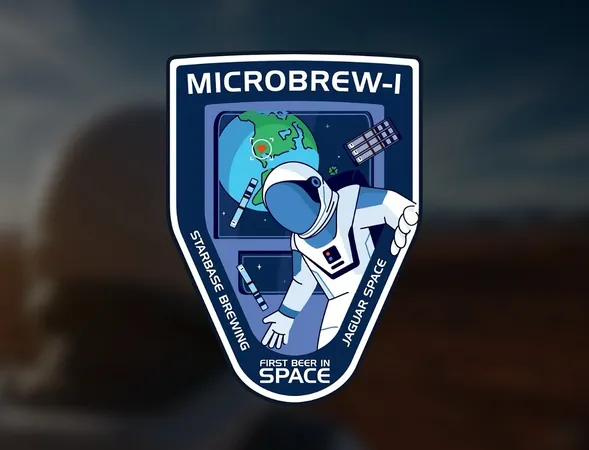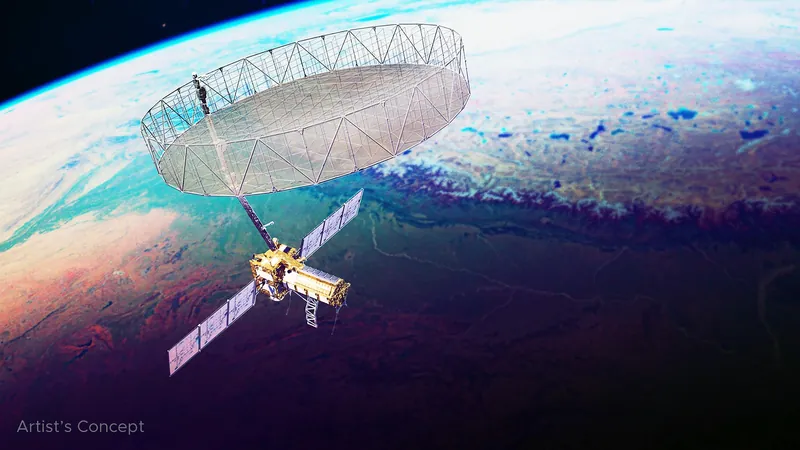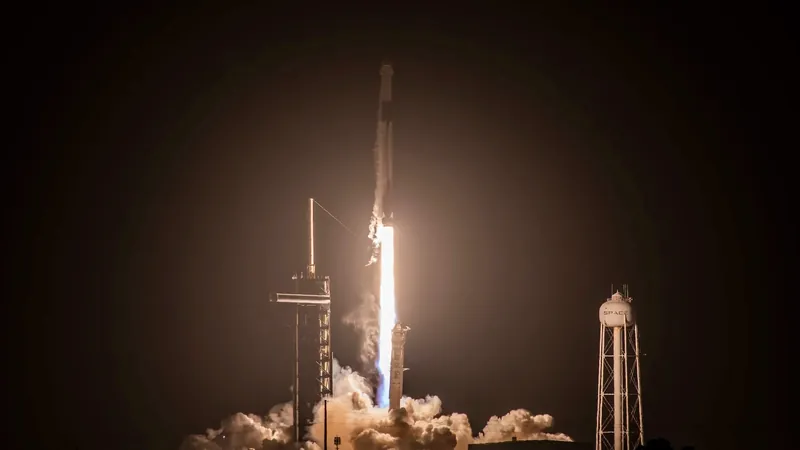
Cheers to Space: Two Bold Brewing Experiments Set for ISS Launch!
2025-07-31
Author: Wei
Some groundbreaking ideas are born over a cold beer, and today, one such concept is taking a giant leap into the cosmos!
In an exciting collaboration, Nate Argroves, founder of Starbase Brewing, joins forces with Luis Zea of Jaguar Space to launch two innovative experiments aboard the International Space Station (ISS) during NASA's Crew-11 mission set for this afternoon.
A Cosmic Collaboration Begins!
This partnership sprouted about a year and a half ago when Argroves, keen on establishing the first brewery on Mars, reached out to Zea while searching for top space microbiologists. The magic happened over drinks when Zea, a passionate homebrewer himself, realized he was also considering a fermentation-related experiment—thus, their collaboration was truly 'meant to be!'
The Experiments Taking Flight!
Today, two exciting experiments are heading for the stars:
1. OASIS: Cultivating Barley in Extraterrestrial Soils!
The 'Optimizing Agriculture in Simulated Interplanetary Soils' (OASIS) project aims to grow barley aboard the ISS using simulated Martian soil, enriched with spent grains from brewing. Teaming up with Texas A&M Agrilife, this experiment could pave the way for sustainable agriculture on Mars!
2. MicroBrew-1: Gravity-Defying Fermentation!
Next, the 'MicroBrew-1' experiment will send tubes containing wort (unfermented beer) and freeze-dried yeast into space, kept apart until an astronaut mixes them by cranking a handle. This pioneering approach will explore how microgravity impacts fermentation—a standard process reliant on Earth’s gravity.
Behind the Scenes of Innovation!
Argroves played a crucial role in shaping the vision for these experiments, lending brewing expertise and funding derived from a significant portion of Starbase Brewing's profits. Meanwhile, Zea handled the scientific details and logistics to ensure success.
Looking to the Future!
These experiments aren't just about enjoying a cold brew in orbit; they hold essential implications for sustainability on Mars. Successfully cultivating crops in Martian regolith is vital for future explorers who aim to live without depending on costly resupply missions. Furthermore, understanding how fermentation changes in lower gravity could revolutionize food production and life support for space travelers, according to Zea.
Join us in raising a glass—metaphorically, of course—to these trailblazing experiments as they embark on a journey that could change space exploration forever!



 Brasil (PT)
Brasil (PT)
 Canada (EN)
Canada (EN)
 Chile (ES)
Chile (ES)
 Česko (CS)
Česko (CS)
 대한민국 (KO)
대한민국 (KO)
 España (ES)
España (ES)
 France (FR)
France (FR)
 Hong Kong (EN)
Hong Kong (EN)
 Italia (IT)
Italia (IT)
 日本 (JA)
日本 (JA)
 Magyarország (HU)
Magyarország (HU)
 Norge (NO)
Norge (NO)
 Polska (PL)
Polska (PL)
 Schweiz (DE)
Schweiz (DE)
 Singapore (EN)
Singapore (EN)
 Sverige (SV)
Sverige (SV)
 Suomi (FI)
Suomi (FI)
 Türkiye (TR)
Türkiye (TR)
 الإمارات العربية المتحدة (AR)
الإمارات العربية المتحدة (AR)